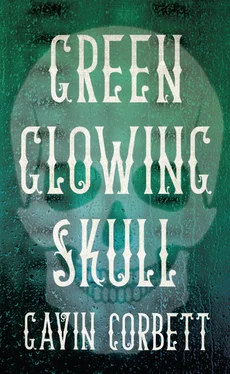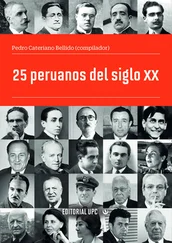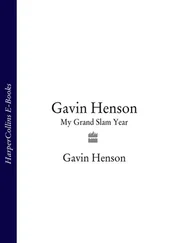‘It came in the form of a piece of supposed advice on the art of acting. “Play-acting” in all senses of the term. He said that in order to win over the women in the audience you must project your understanding of the character of the role you are playing to the farthest one of them, in the same way that you might project your voice, the hope being that they will develop feelings for a figment of your imagination. Well let me tell you about another piece of advice, much better advice, not from the Maestro but from a weary baritone in his circle. This man had said: The things that give the most uncomplicated pleasure are most connected to our survival on earth. And these themselves are uncomplicated things. Eating, love, assembling fires — but most of all love! Love is all that matters in the end. (Forgive the imagery, Missus Dwyer.) And when you find love (and please forgive my Italian accent here too), thissa granda lifestyle of the opera house willa disappeara, no notta really, but I mean that it willa seema that way and it willa not be a disaster.’
‘And what is your reading of that?’
‘It is open to interpretation, Missus Dwyer. Something to do with falsity, and honesty, and the first overcoming the second through learned behaviour, and how this might be reversed. This baritone was a grown man of great experience, and he could diagnose something in me that I could not see myself. I speak now as one youth to the very best of youth before me. I say, away with the pomposity and the grandiosity! Go with what is in your heart! Let the gold leaf lift and the stucco crumble and show you are as brittle as the balconies that keep men in the gods! Better to tell a girl that she is beautiful and that you are a fool.’
He let his words hang in the air and watched the motes float above him to a ceiling rose plugged and clotted with eras of paint.
Afterwards he waited for the girl outside. He caught her by the gate, by the arm — somewhat brutishly, he worried for an instant — and blurted: ‘Won’t you come for coffee with me?’
She gave no immediate and clear response. Her mouth hung open, the ‘Continental’ face was pale, and the eyes that had seemed so sleepy and reassuring were now alert and panicked. He wondered if he had misread the look she had given him in the hall. But he had such an unshakeable feeling within him, damn her, and she had put it there, and he could not accept that it did not exist within her also.
She went to her friends, two girls who had stalled between the gateposts, and the three of them gathered in a huddle. They were giddy and all the while cast glances back at him. The whole scene was very ‘American’, it struck him, and how must he have come across, he wondered — so brave and forward and American-seeming in standing his ground and waiting for an answer? Or did they see him, in fact, and in spite of his and Missus Dwyer’s best efforts, in the mould of the romantic Italian tenor?
He would be resolute now and show her he was a man of will and then, by and by, after she had got to know him, she would see the man he thought she had seen in the hall, the man he knew himself to be and had spoken about, the young man so uncertain of himself.
She turned and came to him — and those eyes now! He would possess them like she possessed them. He would not care if anyone else might think of them as ordinary, he would carry them in a box in his pocket if he were allowed and eat them with herbs and butter.
‘Don’t you know,’ he said, ‘that you have eyes that would bring peace to warring nations? You have the eyes of a lobster. Do you know what an anagram of lobster is? It is “bolster”. You have eyes that would bolster a man before a day’s work.’
‘Excuse me?’ she said. ‘I’d like to think I have a wider set of functions than that.’
‘Oh you do, no it’s true, I wouldn’t doubt that at all. Please, let me buy you coffee and tell you what you have done for me this afternoon.’
Rickard Velily stood on his bed in his attic room and looked out of the open porthole. For half an hour he watched the night sky, lulled by bleeping lines, readable left to right or right to left: aeroplanes and helicopters; the helicopters equipped with heat cameras, Rickard had learnt, to find illegal factories in attic spaces like his own. He was not on drugs — he was not in favour of drugs — though the porthole plate, flipped flat in front of him through a diametric fulcrum, would have been ideal for spreading out this or some other drug. Time could be spent like this, standing on the bed, or lying on the bed.
He was feeling dreamy, nostalgic, romantic. A minty moon, a paper moon , unmoved by aircraft distress signals, shone brightly for, and only for, this bailiwick of Tin Pan Alley. It was at one time the home of song — and would be again! (he thought with sudden determination). Into this silver pool of spinning life the minstrel cast lines from his heavenly perch. Lovers birthed from electrical charges danced to his jigs and swayed to airs carrying the sadness of older worlds and times. Well it was that Americans were passing through a time of change again and the fixative of nostalgia and meme of melancholy would be dominant once more in music. Rickard would send the message from the concert stage and he would sell songs from an office and build new words yet again on old airs. In winter and autumn he would do this, in society season, when people came back to the city. In summer he would harvest his airs in Ireland. He would receive blind harpists. Scenes from The Severe Dalliance played out in his mind. He thought of Toni again. He was unhappy again, quickly.
On most nights that were not practice nights Denny and Clive could be found downstairs in the drawing room. Mostly Rickard would leave them be, and usually he spent the time — if not in his room, or outside meandering — in the clubhouse library. But there was not even a good range of books in the library. Every book, as in his room, was on the subject of business. The only material he could find on music was in a volume called The Brill Building: An American Production Line and another called Why I Dropped Out, What I Reassessed, And How I Came Back More Eager Than Ever , which had a chapter on Gregorian chanting. How hungry he was to learn and improve. He felt ignorant beside Denny’s knowledge and past, and so, he suspected, did Clive; he and Clive were merely enthusiasts, when it boiled down to it. He had come to his art by whim, really; but then he might as well have, for it was all whimsy, what they were doing, these sentimental, art-less ballads. But they held history, at least; or at least they came from a time that was historical, even if the words that were in them were historical fantasy.
In his bed, an hour after he had closed his eyes, he was still not asleep. At the same time the awareness of this came to him after what felt like a wakening. His body lay luxuriously sedate and insensitive while his head was excited. He allowed the excitements — really just a bank of tightly packed and furiously pumping blocks, like the hidden parts of piano keys, but not wooden — to continue as if he were asleep. It was not a happy excitement, but the kind that came from being lost, drifting in darkness, expecting to bump into things and never doing so. There were great mysteries about his immediate situation. (These last were words that seemed to have come from without.) He stood now on the floor in his bare feet. The floorboards were warm, as if heated from underneath. The tip of his tongue moved around the back of his front teeth. He felt that his whole being was concentrated in the tip of his tongue, and he was disturbed by the sensation of roaring in every direction across a huge, huge … white wall of death. (The room was unusually dark, so that, if it weren’t for the warmth that he felt transfer from the floor to his feet, he could easily have imagined he was floating.) Aquaplaning. He remembered that Denny had mentioned that he too had stayed in this room for a time after he joined the club. If there was a record of Denny’s past anywhere it would be in this room, in the form of a diary, a logbook, a tablet of ogham. A section of the floorboards came away at Rickard’s command, lifting, in a block. He stared down into the hole beneath, puzzling how he would move to the light switch without falling into other sections of hole around him. There was some light in the chasm: faint granules that illuminated enough in their vicinity to reveal a network of pipes, wires, resistors — circuitry. He knelt down and leaned into the gap. He felt heat on his face, and heard ticking and whirring. A chaffinch’s metallic note of ‘tchirrit’. It would be work for another day to find this diary, in better light.
Читать дальше
Конец ознакомительного отрывка
Купить книгу












